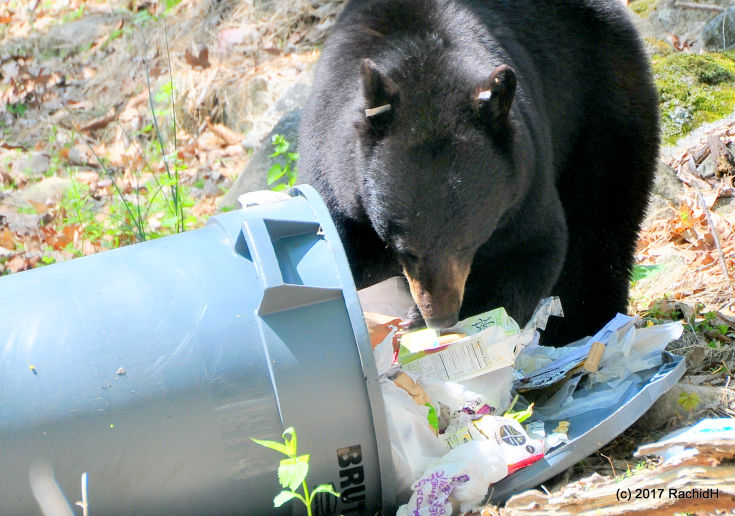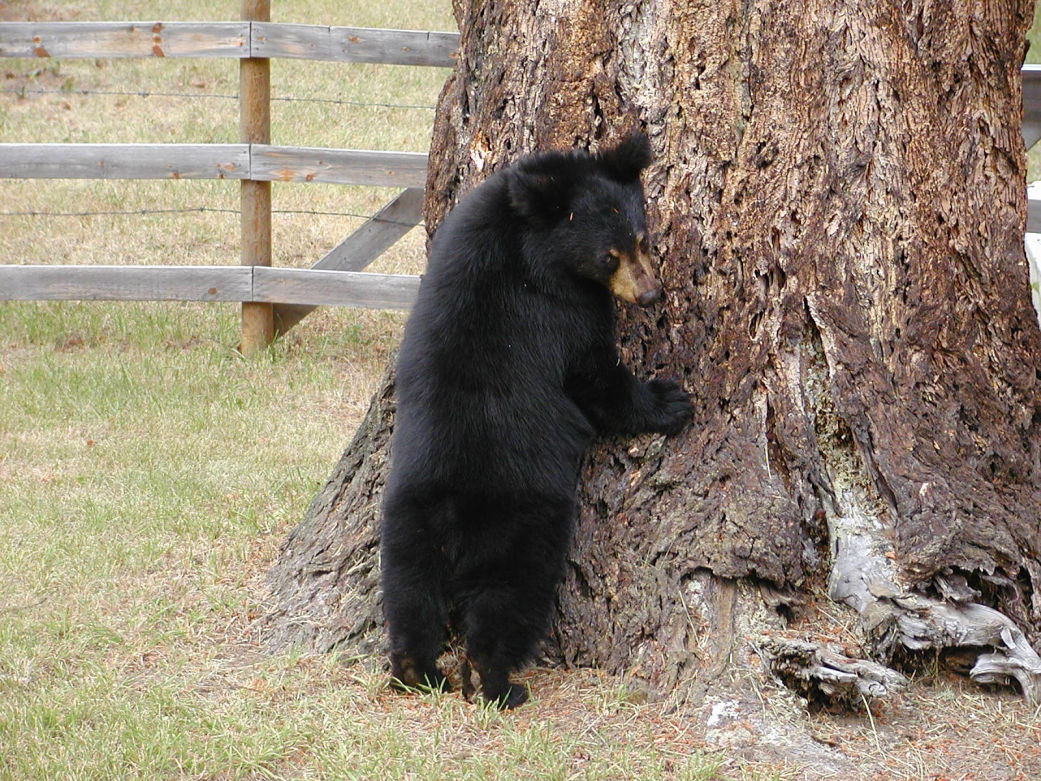
Black bears range widely throughout North America, frequenting mountainous forests and swamps as well as woodlots in suburban neighborhoods. Bears are omnivorous and their diets vary seasonally. Their diet is mostly plant material, but also includes small mammals, carrion and garbage. Adult black bears typically weigh 100-300 pounds, but males can exceed 500 pounds. Bears are agile and quick, and they are excellent climbers. They are typically nocturnal and generally avoid people, but also readily adapt to and tolerate people. Bears typically den (hibernate) in fall (late October-early December) and emerge in spring (March-April). Some bears may not den at all if they continue to find sufficient food.
Around homes, bears may scavenge for food in garbage containers and bird feeders and for pet and livestock food left outside. They can damage buildings and vehicles while searching for human-provided food. Bears can also damage crops (especially corn) and beehives. They damage trees by clawing bark and breaking branches, and will feed from fruit trees.
